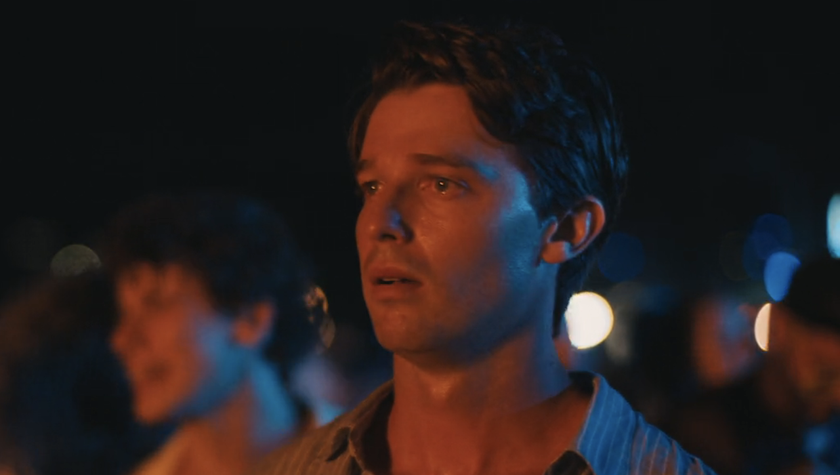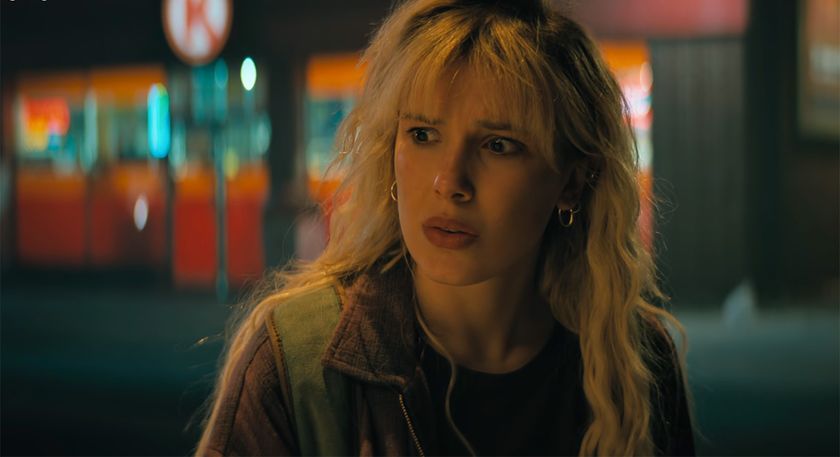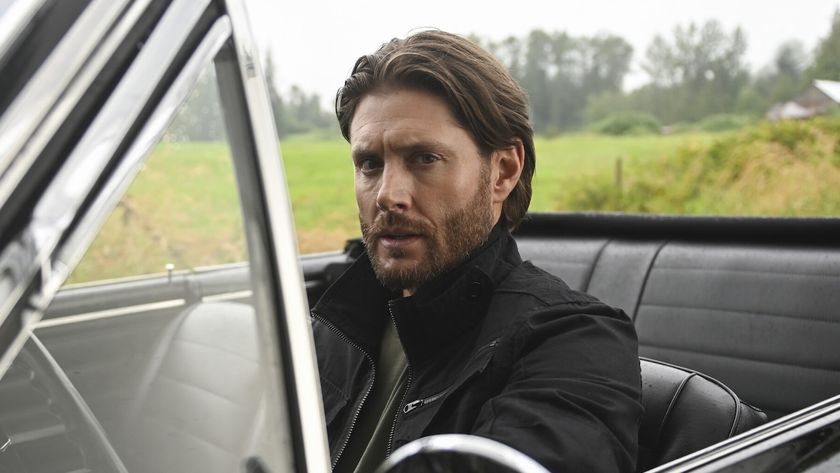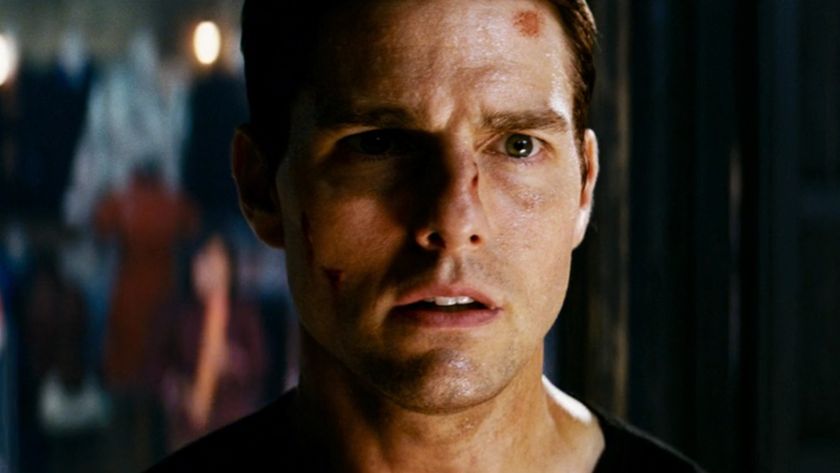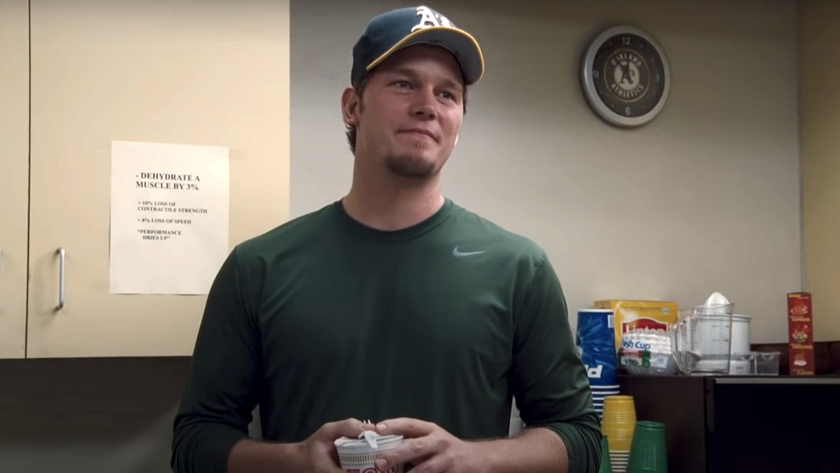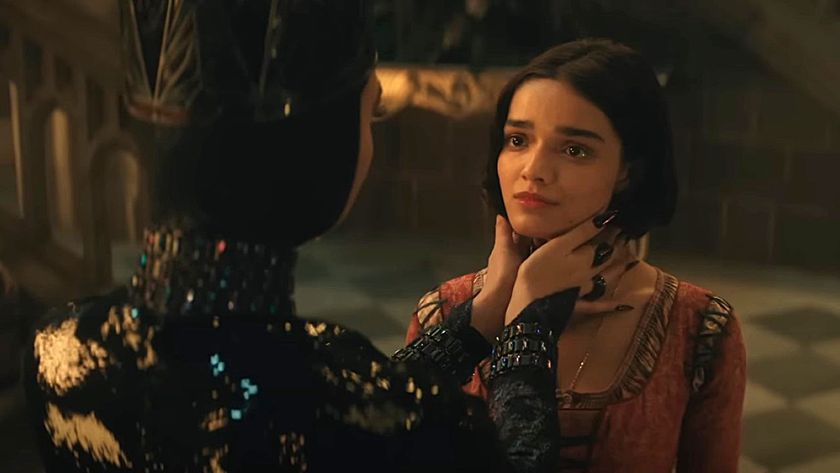The 10 Worst Places The Walking Dead Characters Have Lived
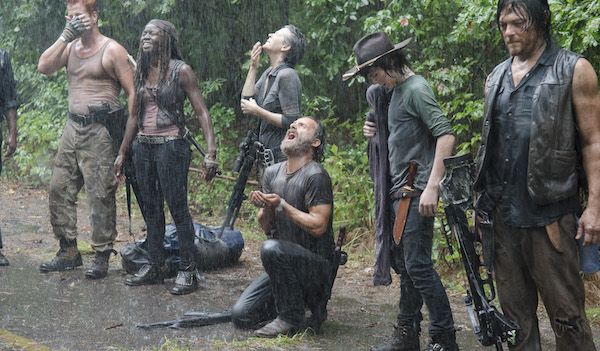
No setting on The Walking Dead lasts for very long, however, some are more memorably terrible than others. Following up on the Season 5 finale of The Walking Dead, we decided to list off some of the worst locations and settings we've seen so far. Of course, even the worst locations had a redeeming quality or two, so we'll lay out the pros in addition to the cons...
This list contains spoilers from Season 1 through 5 of The Walking Dead. Read on at your own risk!
Here are the ten worst places the Walking Dead characters have lived, ordered more or less by when they appeared...
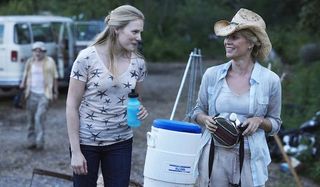
The Camp
Pros: a fun, outdoorsy atmosphere, access to woods for private rendezvous, proximity to Atlanta.
Cons: Basically no protection against walkers. Atlanta is overrun by walkers, so you probably don't want to go there anyway.
Who doesn't love camping? The Atlanta survivor camp featured in Season 1 of The Walking Dead wasn't terrible as a starter-camp for the growing group of apocalypse survivors, but as Ed, Amy, Jim and the dozen or so other people who were bitten there can attest, the place is basically useless as a place to hide from the undead. The camp was a temporary refuge at best. If nothing more, it thinned the show's herd substantially leading into Season 2.
CINEMABLEND NEWSLETTER
Your Daily Blend of Entertainment News
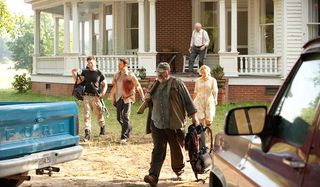
The Greene Family Farm
Pros: Walls and doors to keep the walkers out, secluded location away from dangerous survivors, lots of room, including a barn. The family living there is comprised of good, relatively hospitable people, including one with medical experience. Proximity to the highway.
Cons: Walker-tainted well water, barn full of zombies, limited resources. Shane.
On paper, the Greene Family Farm seems like an ideal location to hide out during a zombie apocalypse. It's set on a large, secluded plot of land away from much of the mayhem of the outside world. And yet, the residence played host to quite a few deaths, including Dale's. We could point the blame at Shane for the series of events that led to the fall of Hershel's farm, but let's face it, things went south so fast when the walkers arrived that it was probably just a matter of time before the place went up in flames. It was just as well. It was getting kind of boring there.
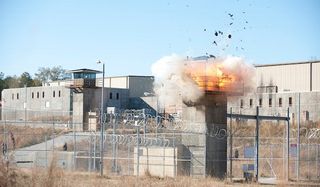
The Prison
Pros: Sturdy walls and mostly-sturdy fences. Lots of room. Places to quarantine sick people.
Cons: Leftover dangerous criminals lurking, walker infestation, dismal surroundings. Also its proximity to Woodbury.
A prison wouldn't be a bad place to hide out during a zombie apocalypse. The West Georgia Correctional Facility actually proved to be one of the better locations for Rick and its people. We won't blame the flu on the prison, but as the Governor's invasion proved, the place wasn't entirely impenetrable. Plus, well, it's a prison. The prison was a good place to escape for a while, but it was no one's dream home, and with its proximity to people like the Governor, it was just a matter of time before the walls came down.
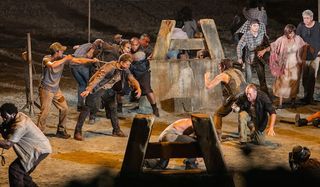
Woodbury
Pros: Mostly walker-free. Growing population of people. Places to live. Steady flow of resources.
Cons: Bizarre public displays of walker-sparring. Unstable leader that sometimes murders people. Challenging the leader may result in death.
Woodbury is was much a community as it was a location. As a location, wasn't so bad. There were resources, plenty of space and relative safety from walkers, not to mention people to socialize with. As a community, the place was a complete and total fail. The population was divided between the murdering and unstable "Governor," the people who supported and assisted him, the people who were blind to his true nature, and those who saw it and were killed as a result. Unless you were a horrible person or you're the ignorance-is-bliss type, Woodbury was a terrible place to live.
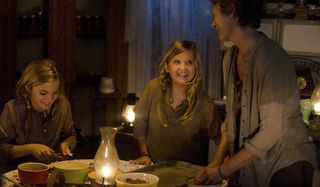
The Grove
Pros: Quaint shelter in a remote location. Hunting options for food. No shortage of pecans. A calm place to relax and regroup.
Cons: Somewhat exposed to walkers. A kid might completely unhinge there.
Carol and Tyreese lived at the pecan grove for one episode, but the events that transpired there were so memorable, the cozy, terrible spot warrants its own place on this list. Confessions and bloodshed ensued. We can't really blame Lizzie for the Grove's failure, other than to suggest that a place so seemingly warm and calm and good might serve as the perfect catalyst for something dark to bubble to the surface. Lizzie went full-on crazy and killed her sister at the grove. Carol put a bullet into Lizzie's head. And then she told Tyreese that she killed Karen. In some respects, the Grove was a slice of heaven amidst a hellish reality. But maybe it was proof that no matter where you go in this apocalypse, hell's going to seep in and when it does, no amount of pecans can sweeten the nightmare.
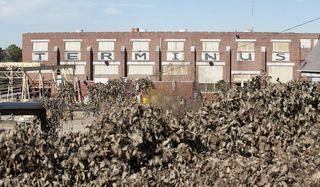
Terminus
Pros: Good location, easy to get to. Fence to keep walkers out. Barbecue served daily.
Cons: Giant pile of bones and stuff. Unstable occupants. It's a trap. Barbecue is people.
Terminus was one of the worst settings to date, and a shining example of just how horrible this reality is. As is the case for Woodbury, Terminus is tainted by its terrible community. Except this group isn't divided into awful and ignorant. The Terminites fall somewhere in that fascinating gray area where people who've faced their own horrors eventually become horrible themselves. Or cannibals, in the case of the Terminus folk. Those who like trains might find Terminus to be a lovely setting, but anyone who spends more than a few minutes there will realize the place is a nightmare.
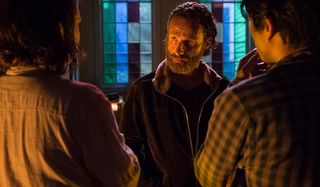
The Church
Pros: Remote location, mostly unoccupied, proximity to a town, plenty of seating, ample supply of candles. Good setting to explore faith. Escape access below the floor.
Cons: Proximity to Terminus people. Unreliable and occasionally cowardly occupant. Dim lighting. Potentially unsettling churchy-vibe.
Relatively speaking, the church wasn't the worst shelter ever. It had walls and a roof, and it was near a town where some food and supplies might be available. The downside was the sole resident, a guilt-ridden, cowardly preacher who's occasionally very emotional and unreliable. But by comparison to the likes of the Governor and Dawn, Gabriel's practically harmless. Still, the church was a temporary shelter at best. It was sturdy enough to keep out most of the undead riffraff, but it was virtually wide open to predators like the cannibals.

Hospital
Pros: Access to medical supplies. High floors limit walker access.
Cons: In the middle of walker-infested Atlanta, people are forced to stay and work off their never-ending debt. Unstable leadership. Sexually-abusive guards. Elevator shaft is one big zombie pit.
The only thing the hospital had going for it was that it's a hospital. But really, the location is terrible, as Atlanta's kind of a mess. The "community" element was even worse, between Dawn's significantly unbalanced leadership and her corrupt, abusive guards, the only reason someone should want to end up there is if they needed medical assistance, and even then, help might not be worth the price.
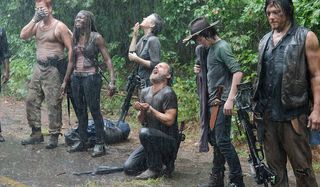
The Road
Pros: There's no shortage of it. Lots of scenery. A place to meet new and interesting people. The chance of discovering supplies is ample.
Cons: No protection from walkers beyond. Exposure to new and dangerous people. The chance of starving or dying of thirst.
The open road has always had its benefits and drawbacks, as evidenced by the numerous times we've seen Rick and his group traveling it. The road often seems like a good option, usually because it's where the characters end up after departing some horrific ordeal. It it's taken them to their next sanctuary and allowed them to cross paths with new people. Of course, the drawbacks of the road have always been dangerous people and regular exposure to walkers. Also, the sight of the characters desperate for water and, at one point, feasting on dog in Season 5 is reason enough to appreciate more enclosed surroundings with access to food and water.
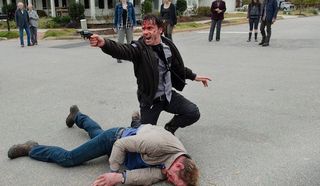
Alexandria
Pros: Protective walls, preserved community, supplies, energy, working plumbing.
Cons: Residents are survival-clueless.
Alexandria's still a bit too new to call it a disaster -- Noah would probably disagree with that -- but looking at the drama that transpired at the end of Season 5, chaos and collapse seem inevitable. Alexandria has a lot going for it, including resources and working plumbing, not to mention mostly well-meaning residents. The problem with this place is that these people are, for the most part, zombie apocalypse newbies. They've been mostly shielded from the horrors of outside, so they haven't adapted to them almost at all. They underestimate the consequences of fear, carelessness and desperation. They think they want Rick's help, but they might not be entirely ready for the form in which that help will come. Time will tell. In the meantime, Alexandria seems ideal but it's probably poised to fall, especially now that the Wolf people know it exists.
Kelly joined CinemaBlend as a freelance TV news writer in 2006 and went on to serve as the site’s TV Editor before moving over to other roles on the site. At present, she’s an Assistant Managing Editor who spends much of her time brainstorming and editing feature content on the site. She an expert in all things Harry Potter, books from a variety of genres (sci-fi, mystery, horror, YA, drama, romance -- anything with a great story and interesting characters.), watching Big Brother, frequently rewatching The Office, listening to Taylor Swift, and playing The Sims.
